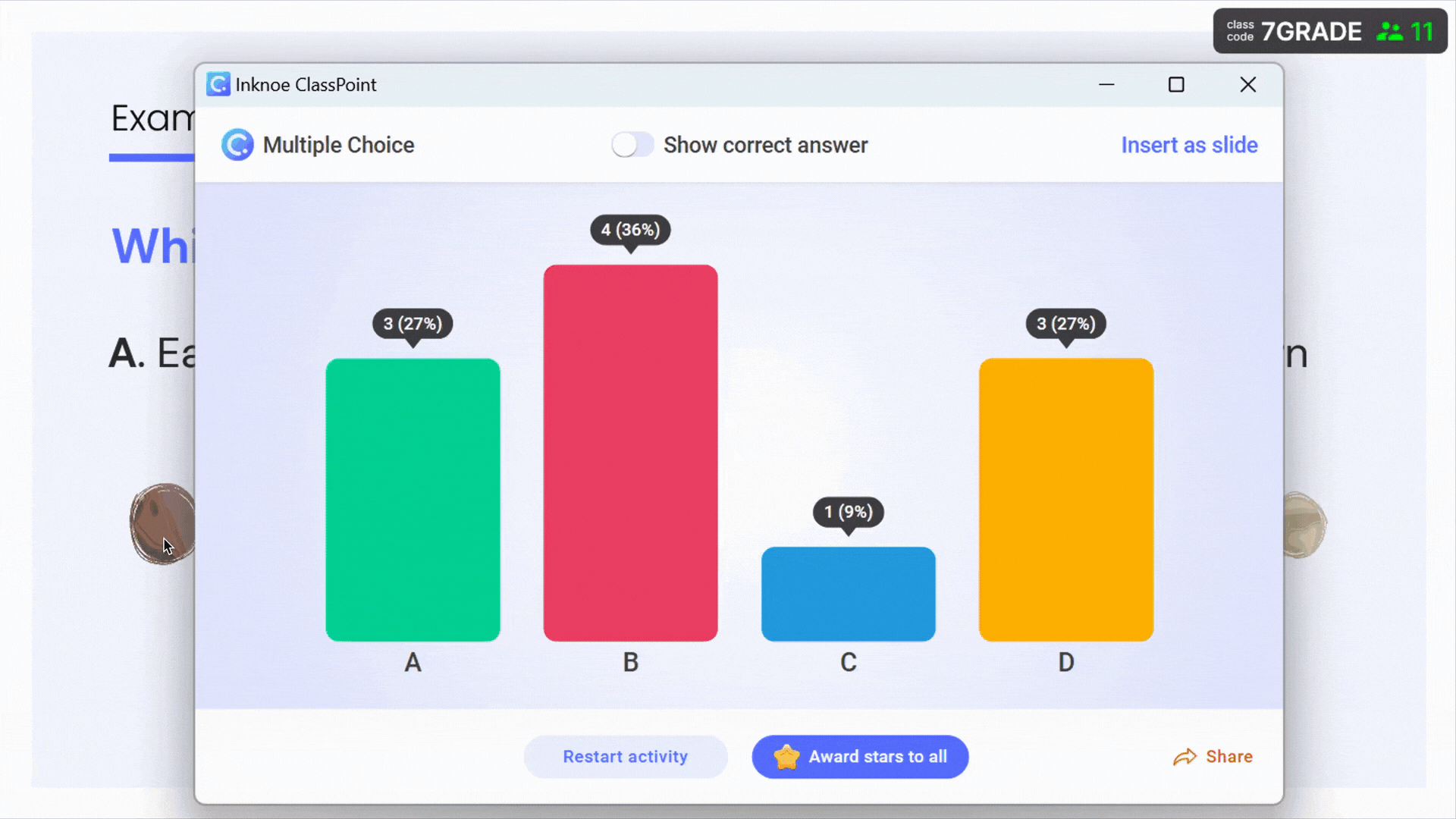Quizzes are a fantastic way to spark curiosity, inspire learning, and add a dash of fun to any setting. From classrooms to casual gatherings, a well-crafted quiz can transform any moment into an engaging challenge. If you’re on the lookout for a diverse set of questions to keep minds sharp and spirits high, you’re in the right place.
We’ve assembled a comprehensive collection of 150 challenging general knowledge questions, thoughtfully organized into four distinct sections to suit various quiz formats and preferences:
- Multiple Choice Questions – Quick, concise, and perfect for testing a wide range of knowledge.
- Short Answer Questions – Encouraging detailed responses and deeper thinking.
- Fill in the Blanks Questions – Ideal for assessing specific knowledge and precision.
Explore these general knowledge questions to inject excitement and educational value into your next quiz session. Dare to challenge yourself and others? Let’s dive in!
Multiple Choice General Knowledge Questions to Test Your Wits!

- What is the largest internal organ in the human body?
A. Heart
B. Brain
C. Liver ✅
D. Kidney - Which element is represented by the symbol ‘Fe’?
A. Lead
B. Iron ✅
C. Fluorine
D. Mercury - What is the capital city of Australia?
A. Sydney
B. Melbourne
C. Canberra ✅
D. Brisbane - Which planet is known as the ‘Red Planet’?
A. Venus
B. Mars ✅
C. Jupiter
D. Saturn - Who wrote the play ‘Romeo and Juliet’?
A. Charles Dickens
B. William Shakespeare ✅
C. Jane Austen
D. George Orwell - What is the smallest prime number?
A. 0
B. 1
C. 2 ✅
D. 3 - In which year did the Titanic sink?
A. 1905
B. 1912 ✅
C. 1920
D. 1898 - What is the hardest natural substance on Earth?
A. Gold
B. Iron
C. Diamond ✅
D. Quartz - Which artist painted the ‘Mona Lisa’?
A. Michelangelo
B. Leonardo da Vinci ✅
C. Vincent van Gogh
D. Pablo Picasso - What is the tallest mountain in the world?
A. K2
B. Mount Kilimanjaro
C. Mount Everest ✅
D. Denali - Which gas is most abundant in the Earth’s atmosphere?
A. Oxygen
B. Nitrogen ✅
C. Carbon Dioxide
D. Hydrogen - Who is known as the ‘Father of Computers’?
A. Alan Turing
B. Bill Gates
C. Charles Babbage ✅
D. Steve Jobs - What is the largest planet in our solar system?
A. Earth
B. Saturn
C. Jupiter ✅
D. Mars - Which language has the most native speakers in the world?
A. English
B. Spanish
C. Mandarin Chinese ✅
D. Hindi - In which year was the United Nations founded?
A. 1945 ✅
B. 1919
C. 1939
D. 1955 - Which country is known as the Land of the Rising Sun?
A. China
B. Japan ✅
C. South Korea
D. Thailand - What is the chemical formula for water?
A. CO2
B. H2O ✅
C. NaCl
D. O2 - Which animal is known for having the most powerful bite?
A. Lion
B. Hippopotamus
C. Crocodile ✅
D. Great White Shark - Who discovered penicillin?
A. Louis Pasteur
B. Marie Curie
C. Alexander Fleming ✅
D. Thomas Edison - What is the longest river in the world?
A. Amazon
B. Nile ✅
C. Mississippi
D. Yangtze - Which organ is responsible for pumping blood throughout the human body?
A. Lungs
B. Brain
C. Heart ✅
D. Kidneys - What is the main ingredient in traditional Japanese miso soup?
A. Tofu
B. Seaweed
C. Miso paste ✅
D. Fish - Which country is the largest by land area?
A. Canada
B. China
C. Russia ✅
D. United States - What is the chemical symbol for gold?
A. Au ✅
B. Ag
C. Pb
D. Pt - Which famous scientist developed the theory of general relativity?
A. Isaac Newton
B. Albert Einstein ✅
C. Galileo Galilei
D. Nikola Tesla - What is the primary component of the Earth’s core?
A. Nickel
B. Iron ✅
C. Silicon
D. Magnesium - Which planet is closest to the sun?
A. Venus
B. Mars
C. Mercury ✅
D. Earth - In which country would you find the ancient city of Petra?
A. Egypt
B. Jordan ✅
C. Greece
D. Turkey - What is the capital of Canada?
A. Toronto
B. Vancouver
C. Ottawa ✅
D. Montreal - Which natural disaster is measured with a Richter scale?
A. Tornado
B. Hurricane
C. Earthquake ✅
D. Flood - Who wrote the epic poem ‘The Odyssey’?
A. Virgil
B. Homer ✅
C. Dante
D. Sophocles - What is the smallest bone in the human body?
A. Stapes ✅
B. Femur
C. Tibia
D. Humerus - Which planet has the most moons?
A. Earth
B. Mars
C. Jupiter ✅
D. Saturn - Who is the author of the ‘Harry Potter’ series?
A. J.R.R. Tolkien
B. J.K. Rowling ✅
C. George R.R. Martin
D. C.S. Lewis - What is the main language spoken in Brazil?
A. Spanish
B. Portuguese ✅
C. English
D. French - Which artist is famous for cutting off his own ear?
A. Pablo Picasso
B. Claude Monet
C. Vincent van Gogh ✅
D. Andy Warhol - What is the currency of Japan?
A. Yuan
B. Won
C. Yen ✅
D. Baht - Which ocean is the largest?
A. Atlantic Ocean
B. Indian Ocean
C. Arctic Ocean
D. Pacific Ocean ✅ - Who was the first woman to fly solo across the Atlantic Ocean?
A. Amelia Earhart ✅
B. Harriet Quimby
C. Jacqueline Cochran
D. Bessie Coleman - Which chemical element has the atomic number 1?
A. Helium
B. Hydrogen ✅
C. Oxygen
D. Nitrogen - What is the longest bone in the human body?
A. Humerus
B. Tibia
C. Femur ✅
D. Radius - Which Shakespeare play features the characters of Goneril, Regan, and Cordelia?
A. Macbeth
B. King Lear ✅
C. Othello
D. Hamlet - What is the most widely spoken language in the world by the number of native speakers?
A. English
B. Hindi
C. Spanish
D. Mandarin Chinese ✅ - Which planet is known for its extensive ring system?
A. Mars
B. Venus
C. Uranus
D. Saturn ✅ - In which city would you find the Colosseum?
A. Athens
B. Rome ✅
C. Istanbul
D. Cairo - What is the main ingredient in guacamole?
A. Tomato
B. Avocado ✅
C. Onion
D. Lime - Which galaxy is Earth located in?
A. Andromeda
B. Sombrero
C. Whirlpool
D. Milky Way ✅ - Who painted the ceiling of the Sistine Chapel?
A. Raphael
B. Michelangelo ✅
C. Leonardo da Vinci
D. Donatello - What is the capital of Iceland?
A. Oslo
B. Helsinki
C. Reykjavik ✅
D. Copenhagen - Which organ is responsible for producing insulin?
A. Liver
B. Pancreas ✅
C. Gallbladder
D. Kidney
Want more? Try these classroom multiple choice quiz questions and this or that questions!
Short Answer General Knowledge Questions to Stretch Your Minds!

- Why is the Amazon rainforest often referred to as the “lungs of the Earth”?
Suggested Answer: The Amazon rainforest is referred to as the “lungs of the Earth” because it produces about 20% of the world’s oxygen through photosynthesis and plays a crucial role in absorbing carbon dioxide, thereby helping to regulate the global climate. - How did the invention of the printing press by Johannes Gutenberg impact European society?
Suggested Answer: The invention of the printing press by Johannes Gutenberg revolutionized European society by making books more accessible, promoting literacy, spreading new ideas quickly, and contributing to significant cultural and intellectual movements like the Renaissance and the Reformation. - Why is the study of DNA considered a pivotal advancement in modern biology?
Suggested Answer: The study of DNA is considered pivotal in modern biology because it provides the blueprint for all living organisms, allowing scientists to understand genetic inheritance, identify genetic disorders, and develop biotechnologies such as genetic engineering and forensic analysis. - How do coral reefs contribute to marine biodiversity and coastal protection?
Suggested Answer: Coral reefs contribute to marine biodiversity by providing habitats and shelter for a vast array of marine species, and they protect coastlines by acting as natural barriers that reduce wave energy, thereby preventing erosion and damage from storms. - Why did the Industrial Revolution begin in Great Britain?
Suggested Answer: The Industrial Revolution began in Great Britain due to a combination of factors, including the availability of natural resources like coal and iron, a strong economy, political stability, a culture of innovation, and advancements in technology and infrastructure. - How does climate change affect polar ice caps and global sea levels?
Suggested Answer: Climate change affects polar ice caps by increasing temperatures, leading to the melting of ice. This contributes to rising global sea levels, which can result in coastal flooding, loss of habitats, and changes in ocean currents and weather patterns. - Why are vaccines important in the prevention of infectious diseases?
Suggested Answer: Vaccines are important in preventing infectious diseases because they stimulate the immune system to recognize and fight specific pathogens, thereby reducing the incidence of diseases, preventing outbreaks, and contributing to herd immunity. - How did the development of the internet transform global communication and information sharing?
Suggested Answer: The development of the internet transformed global communication and information sharing by enabling instant connectivity, facilitating the rapid dissemination of information, supporting the growth of social media, and revolutionizing industries such as commerce, education, and entertainment. - Why is biodiversity crucial for the stability and health of ecosystems?
Suggested Answer: Biodiversity is crucial for the stability and health of ecosystems because it ensures the resilience of ecosystems to environmental changes, supports a wide range of ecosystem services, and provides genetic diversity that is vital for adaptation and survival. - How do renewable energy sources help in combating climate change?
Suggested Answer: Renewable energy sources help combat climate change by providing cleaner alternatives to fossil fuels, reducing greenhouse gas emissions, decreasing air pollution, and promoting sustainable development through the use of natural resources like solar, wind, and hydroelectric power. - Why did the Renaissance begin in Italy during the 14th century?
Suggested Answer: The Renaissance began in Italy during the 14th century due to Italy’s strategic location as a center of trade, the influence of classical antiquity, the wealth of Italian city-states, and the patronage of the arts by influential families such as the Medici. - How does photosynthesis contribute to the energy cycle in ecosystems?
Suggested Answer: Photosynthesis contributes to the energy cycle in ecosystems by converting solar energy into chemical energy in the form of glucose, which is used by plants for growth and development and serves as a primary energy source for herbivores and other organisms in the food chain. - Why is the study of history important for understanding contemporary society?
Suggested Answer: The study of history is important for understanding contemporary society because it provides insights into past events and decisions, helps us learn from previous mistakes, informs our cultural identity, and aids in the development of critical thinking and informed decision-making. - How do bees contribute to agricultural productivity and biodiversity?
Suggested Answer: Bees contribute to agricultural productivity and biodiversity by pollinating a wide variety of crops and wild plants, which is essential for the production of fruits, vegetables, and seeds, and supports the health and diversity of ecosystems. - Why is the conservation of endangered species important for ecological balance?
Suggested Answer: The conservation of endangered species is important for ecological balance because each species plays a unique role in its ecosystem, and the loss of a species can lead to disruptions in food webs, loss of biodiversity, and the collapse of ecosystems. - How did the discovery of penicillin change the field of medicine?
Suggested Answer: The discovery of penicillin changed the field of medicine by introducing the first effective antibiotic, which revolutionized the treatment of bacterial infections, significantly reduced mortality rates, and paved the way for the development of more antibiotics. - Why is the Great Barrier Reef considered an important natural wonder?
Suggested Answer: The Great Barrier Reef is considered an important natural wonder due to its vast biodiversity, its role as a critical habitat for marine species, its contribution to the local economy through tourism and fishing, and its significance in scientific research. - How did the fall of the Berlin Wall symbolize the end of the Cold War?
Suggested Answer: The fall of the Berlin Wall symbolized the end of the Cold War by marking the collapse of the division between East and West Berlin, representing the broader decline of communist regimes in Eastern Europe, and leading to the reunification of Germany and the spread of democratic values. - Why is the concept of sustainable development important for future generations?
Suggested Answer: The concept of sustainable development is important for future generations because it promotes the responsible use of resources, ensures environmental protection, supports economic growth, and aims to meet the needs of the present without compromising the ability of future generations to meet their own needs. - How did the invention of the airplane impact global travel and commerce?
Suggested Answer: The invention of the airplane impacted global travel and commerce by drastically reducing travel times, facilitating the movement of people and goods across long distances, promoting international trade, and contributing to the globalization of the economy and culture. - How does deforestation affect global climate and local ecosystems?
Suggested Answer: Deforestation affects global climate by reducing the number of trees that absorb carbon dioxide, leading to increased greenhouse gas levels. It also disrupts local ecosystems, leading to loss of habitat, decreased biodiversity, and altered water cycles. - Why is the moon landing in 1969 considered a significant achievement in human history?
Suggested Answer: The moon landing in 1969 is considered a significant achievement because it represented a monumental technological and scientific accomplishment, showcased human ingenuity, and marked the first time humans set foot on another celestial body. - How does the water cycle contribute to the distribution of Earth’s water resources?
Suggested Answer: The water cycle contributes to the distribution of Earth’s water resources by continuously moving water through evaporation, condensation, precipitation, and runoff, ensuring the replenishment of freshwater sources and maintaining ecological balance. - Why are coral reefs often referred to as the “rainforests of the sea”?
Suggested Answer: Coral reefs are referred to as the “rainforests of the sea” because of their incredible biodiversity, providing habitat and shelter for numerous marine species, similar to how rainforests support diverse terrestrial life. - How did the abolition of slavery impact social and economic structures in the United States?
Suggested Answer: The abolition of slavery significantly impacted social and economic structures in the United States by ending a system of forced labor, leading to the reconstruction era, altering the agricultural economy, and laying the groundwork for civil rights movements. - Why is the preservation of cultural heritage important for future generations?
Suggested Answer: The preservation of cultural heritage is important for future generations because it maintains the connection to our history, fosters a sense of identity and continuity, and allows future generations to learn from and appreciate their cultural and historical roots. - How do greenhouse gases contribute to global warming?
Suggested Answer: Greenhouse gases contribute to global warming by trapping heat in the Earth’s atmosphere, creating a “greenhouse effect” that increases global temperatures, leading to climate change and its associated impacts on weather patterns, sea levels, and ecosystems. - Why did the American Revolution have a significant impact on global history?
Suggested Answer: The American Revolution had a significant impact on global history by inspiring other independence movements, promoting democratic ideals, and challenging the notion of colonial rule, influencing the political landscape worldwide. - How does the process of photosynthesis benefit both plants and animals?
Suggested Answer: Photosynthesis benefits plants by allowing them to convert sunlight into energy, producing oxygen as a byproduct, which is essential for animal respiration. This process sustains the food chain and maintains atmospheric oxygen levels. - Why is the preservation of biodiversity crucial for medical research?
Suggested Answer: The preservation of biodiversity is crucial for medical research because diverse ecosystems provide a wealth of genetic resources, potential pharmaceuticals, and biological insights that can lead to the discovery of new treatments and medical advancements. - How did the Industrial Revolution change urbanization patterns?
Suggested Answer: The Industrial Revolution changed urbanization patterns by driving people from rural areas to cities in search of factory jobs, leading to rapid urban growth, the development of new infrastructure, and significant changes in living and working conditions. - Why is the study of economics important for understanding societal development?
Suggested Answer: The study of economics is important for understanding societal development because it analyzes how resources are allocated, how wealth is distributed, and how economic policies influence the overall well-being of a society, guiding decision-making and development strategies. - How does the process of natural selection contribute to the evolution of species?
Suggested Answer: Natural selection contributes to the evolution of species by favoring individuals with traits that enhance survival and reproduction in a given environment, leading to gradual changes in the species over generations and the development of new adaptations. - Why did the fall of the Roman Empire mark a significant turning point in European history?
Suggested Answer: The fall of the Roman Empire marked a significant turning point in European history by leading to the fragmentation of Western Europe, the rise of feudalism, the spread of Christianity, and setting the stage for the Middle Ages and the eventual Renaissance. - How do renewable energy sources differ from non-renewable energy sources?
Suggested Answer: Renewable energy sources, such as solar, wind, and hydro, are naturally replenished and have a lower environmental impact, whereas non-renewable energy sources, like coal, oil, and natural gas, are finite and contribute to environmental pollution and climate change. - Why is the concept of democracy significant in modern political systems?
Suggested Answer: The concept of democracy is significant in modern political systems because it promotes the principles of equality, freedom, and representation, allowing citizens to have a voice in government decisions and contributing to the protection of human rights and the rule of law. - How does the process of fermentation benefit the food and beverage industry?
Suggested Answer: Fermentation benefits the food and beverage industry by converting sugars into alcohol, gases, or acids through the action of microorganisms, producing products like bread, beer, yogurt, and sauerkraut, and enhancing flavors, textures, and nutritional value. - Why is the Great Wall of China considered an architectural marvel?
Suggested Answer: The Great Wall of China is considered an architectural marvel due to its immense length, historical significance, and the engineering ingenuity required to construct it across diverse terrains, serving as a symbol of China’s strength and resilience. - How did the discovery of electricity transform daily life and industry?
Suggested Answer: The discovery of electricity transformed daily life and industry by enabling the development of electric lighting, appliances, and machinery, improving efficiency, convenience, and productivity, and revolutionizing communication, transportation, and entertainment. - Why is the protection of wetlands important for environmental health?
Suggested Answer: The protection of wetlands is important for environmental health because wetlands provide critical habitats for wildlife, improve water quality by filtering pollutants, store floodwaters, and help maintain the hydrological cycle and carbon sequestration. - How did the invention of the steam engine contribute to the Industrial Revolution?
Suggested Answer: The invention of the steam engine contributed to the Industrial Revolution by providing a new, powerful source of energy for factories, transportation, and machinery, enabling mass production, increased efficiency, and the expansion of industries. - Why is the study of psychology important for understanding human behavior?
Suggested Answer: The study of psychology is important for understanding human behavior because it explores the mental processes, emotions, and social interactions that influence actions, providing insights into personal development, mental health, and social dynamics. - How does climate change impact biodiversity and ecosystems?
Suggested Answer: Climate change impacts biodiversity and ecosystems by altering habitats, affecting food availability, changing migration patterns, and increasing the frequency of extreme weather events, leading to species extinction and ecosystem disruption. - Why did the Space Race between the United States and the Soviet Union have significant geopolitical implications?
Suggested Answer: The Space Race between the United States and the Soviet Union had significant geopolitical implications because it was a demonstration of technological and scientific superiority, influenced global political dynamics, and spurred advancements in space exploration and technology. - How do antibodies function in the immune system to protect against infections?
Suggested Answer: Antibodies function in the immune system by recognizing and binding to specific antigens on pathogens, neutralizing them, marking them for destruction by other immune cells, and providing immunity against future infections by the same pathogen. - Why is the preservation of rainforests crucial for global ecological balance?
Suggested Answer: The preservation of rainforests is crucial for global ecological balance because they host a vast diversity of species, regulate climate by absorbing carbon dioxide, produce oxygen, and maintain water cycles, supporting both local and global environments. - How did the discovery of the structure of DNA by Watson and Crick impact genetic research?
Suggested Answer: The discovery of the structure of DNA by Watson and Crick impacted genetic research by revealing the double helix model, which explained how genetic information is stored and replicated, leading to advancements in molecular biology, genetics, and biotechnology. - Why is the concept of human rights fundamental to modern societies?
Suggested Answer: The concept of human rights is fundamental to modern societies because it ensures the protection of individual freedoms, equality, and dignity, providing a basis for justice, democracy, and international law, and promoting social stability and peace. - How does urbanization influence environmental sustainability?
Suggested Answer: Urbanization influences environmental sustainability by increasing resource consumption, generating waste, and contributing to pollution, but it also offers opportunities for efficient resource use, innovation in green technologies, and sustainable urban planning. - Why did the Renaissance lead to significant changes in art, science, and thought?
Suggested Answer: The Renaissance led to significant changes in art, science, and thought by reviving classical knowledge, encouraging curiosity and creativity, promoting humanism, and fostering an environment where artists, scientists, and thinkers could explore new ideas and make groundbreaking discoveries.
Want more challenging questions? Try these tricky commmon sense questions and hot seat questions to test your audience's wits and keep your audience on their toes!
Fill in the Blanks General Knowledge Questions to Exercise Your Brainpower!

- The process by which plants convert _________ and _________ into chemical energy is called _________. (sunlight, carbon dioxide, photosynthesis)
- The world’s largest desert, the _________, is located in _________. (Sahara Desert, Africa)
- William Shakespeare is the author of the famous play “_________ and _________”. (Romeo, Juliet)
- The capital of _________ is the oldest continuously inhabited city in the world. (Damascus)
- The chemical element with the symbol “Na” is _________, commonly known as _________. (sodium, salt)
- The longest river in the world is the _________, flowing through _________. (Nile, northeastern Africa)
- The Great Wall of _________ was built to protect against _________. (China, invasions)
- _________ is known as the “Father of _________”. (Euclid, Geometry)
- The element with the atomic number 79 is _________, which is often used in _________. (gold, jewelry)
- The human body’s largest internal organ is the _________, which performs _________ and _________ functions. (liver, detoxification, metabolism)
- The invention of the _____________ by Johannes Gutenberg revolutionized the _________ industry. (printing press, publishing)
- The ________________ is known for its extensive and colorful _________ reefs. (Great Barrier Reef, coral)
- The first successful powered flight was made by the _________ brothers in _________. (Wright, 1903)
- The _____________ was a pivotal event that marked the end of _________. (atomic bombing, World War II)
- The _________ is a famous prehistoric monument located in _________. (Stonehenge, Wiltshire)
- The _____________ is considered the largest living structure on Earth, located in _________. (Great Barrier Reef, Australia)
- The _________ is known for dividing the Earth into the _________ and _________ Hemispheres. (Equator, Northern, Southern)
- The ______________ is the tallest mountain in the world, located in the _________. (Mount Everest, Himalayas)
- The _________ was a period of great intellectual and artistic activity in _________. (Renaissance, Europe)
- _________ is a famous ancient Greek philosopher known for his contributions to Western _________. (Socrates, philosophy)
- The _________ connects the _________ and _________ Oceans through Central America. (Panama Canal, Atlantic, Pacific)
- The _________ was a significant event that led to the independence of the ____________. (American Revolution, United States)
- The ______________ is a critical system in the human body responsible for circulating _________. (cardiovascular system, blood)
- _________ is the second largest continent in the world by _________. (Africa, land area)
- The _________ is the smallest and most densely populated _________ in the world. (Vatican City, country)
- The _________ is known for its iconic _________ tower, Big Ben. (Houses of Parliament, clock)
- The _________ is a famous art museum located in _________. (Louvre Museum, Paris)
- The _________ is the main legislative body of the _________. (Congress, United States)
- The _________ is a historical document that was signed in _________. (Magna Carta, 1215)
- The _________ is the largest and most diverse _________ in the world. (Amazon Rainforest, rainforest)
- The _________ is an international organization established after _________ to promote peace and cooperation. (United Nations, World War II)
- The _________ is a famous space telescope launched by _________ in 1990. (Hubble Space Telescope, NASA)
- _________ is known for its distinctive ______________. (Pisa, Leaning Tower)
- The _________ is the longest wall in the world, built to protect against _________. (Great Wall of China, invasions)
- The _________ were an ancient civilization known for their _________ and _________. (Egyptians, pyramids, hieroglyphs)
- The _________ is a large and powerful river in _________. (Amazon River, South America)
- The _________ allows ships to pass between the _________ and _________ Oceans. (Panama Canal, Atlantic, Pacific)
- _________ is an essential nutrient that helps build and repair _________ in the human body. (Protein, tissues)
- The _________ is the smallest bone in the human body, located in the _______________. (stapes, middle ear)
- The _________ is a significant scientific theory that explains the diversity of life on _________. (theory of evolution, Earth)
- The _________ is a famous landmark located in _________. (Lincoln Memorial, Washington, D.C.)
- The _________ is a historical period marked by great advances in _________ and _________. (Industrial Revolution, science, technology)
- _________ is the main structural _________ found in skin and connective tissues. (Collagen, protein)
- The _________ is a system of measurement used worldwide, based on the number _________. (metric system, 10)
- The _________ is the largest gland in the human body, involved in _________ and _________. (liver, detoxification, metabolism)
- The _________ is a major river in _________, known for its historical significance. (Nile River, Egypt)
- The _________ is an organ that pumps blood throughout the _________. (heart, human body)
- The _________ was a historical event that involved the division of _________ into East and West. (Berlin Wall, Germany)
- _________ is the primary language spoken in _________. (Portuguese, Brazil)
- The _________ is the highest law of the United States, establishing the framework of _________. (Constitution, government)
Play fill-in-the-blanks in a unique way with these Student-Friendly Cards Against Humanity questions!
Making Your General Knowledge Questions Interactive with ClassPoint
Now that you have a diverse set of general knowledge questions, it’s time to bring them to life using ClassPoint. ClassPoint is a powerful tool that integrates seamlessly with Microsoft PowerPoint, allowing you to create engaging and interactive quizzes. Whether you’re using Multiple Choice Questions (MCQ), Short Answer Questions, or Fill in the Blanks (FIB), ClassPoint has you covered. Here’s how you can utilize these questions and make your PowerPoint presentations interactive and engaging.
Steps to Create and Run Interactive Quiz Questions with ClassPoint
- Set the Stage
- Begin by opening your PowerPoint presentation and adding your question slides. To ensure a seamless flow to your quiz session, make sure that questions provided up above are in separate slides!
- Integrate ClassPoint
- Download and install ClassPoint for free. This tool will enable you to run interactive quizzes directly within PowerPoint, enhancing your presentation with interactive elements that make learning fun and engaging.
- Set Up Interactive Quizzes
- With ClassPoint installed, a new ClassPoint tab should appear on your PowerPoint ribbon. By then, navigate to the question slide you wish to make interactive. Select the appropriate interactive quiz question from the ClassPoint tab and a question button will then be embedded onto the slide. Customize the question settings based on your quiz type using the play options available on the side panel.

- Launch the Quiz
- Invite participants to join the quiz by providing them with the unique code generated at the top right of your presentation in slide show. This ensures that everyone can actively participate using their devices at classpoint.app. Participants can either manually input the codes or scan the QR code provided.

- Monitor Responses and Award Points in Real-Time
- As participants submit their answers, use ClassPoint’s real-time monitoring feature to award points, track scores, and observe overall progress. This live feedback adds an extra level of excitement and engagement to your quiz session.

- Display Leaderboard Updates
- Keep the competition fierce by displaying leaderboard updates after each question. This visual representation of participants’ standings intensifies the competitive spirit.
- Conclude with a Winner
- Wrap up the quiz by revealing the final leaderboard and celebrating the top performers. A well-organized conclusion ensures that everyone leaves with a positive experience, eager for the next interactive quiz session.

By following these steps, you can transform your set of general knowledge questions into an interactive and captivating quiz experience. ClassPoint not only enhances the learning experience but also makes it more enjoyable for everyone involved. Give it a try and watch your PowerPoint presentations come to life!
Food for Thought
General knowledge questions are a great way to keep your mind sharp and learn new things in a fun way. Whether you’re using them to teach, to entertain, or just to challenge yourself, they offer a fantastic mix of education and enjoyment. The variety of questions, from Multiple Choice to Short Answer and Fill in the Blanks, ensures there’s something for everyone.
Take these general knowledge questions and enjoy the process of discovering new facts and testing your knowledge. Remember, the goal is to learn and have fun. So gather your friends, family, or students and see who comes out on top, of course, with the help of ClassPoint. Happy quizzing!
